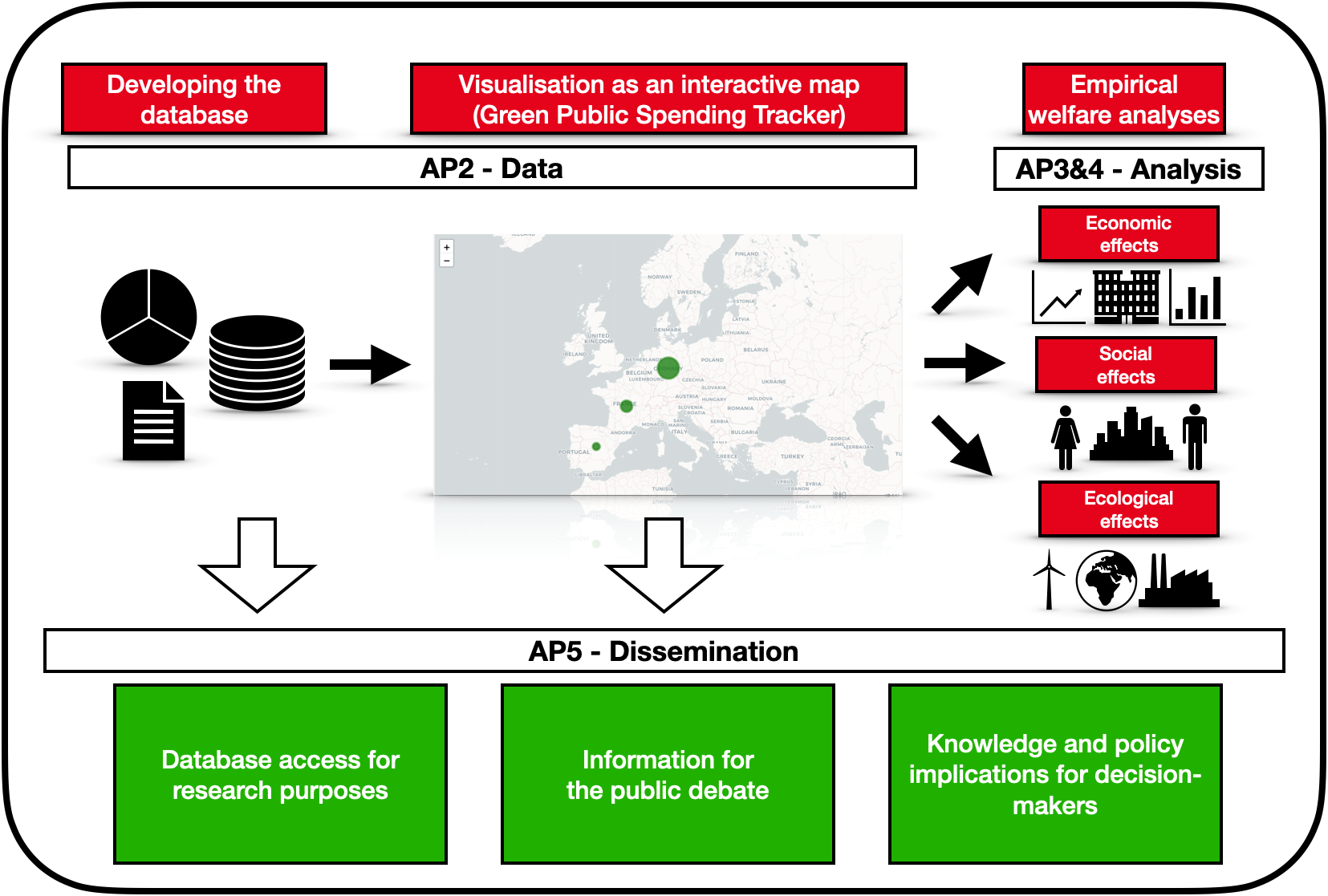Research project "Social-Ecological effects of green public expenditures"
SEED is a cooperation project between the Chair of Macroeconomics at Chemnitz University of Technology and the Scienze Politiche Univesita degli studi Bari unded by the Hans Böckler Foundation.
What are the employment, growth and environmental impacts associated with green public expenditures? The project examines this question by collecting a new type of European data set on green public expenditures. Econometric methods are used to analyse the effects on socio-ecological indicators and identify best practices from the EU member states.
Context
Climate change, the associated adjustments to our consumption and production structures, and the resulting implications for workers and consumers represent one of the greatest challenges facing our society today. The state plays a central role as an active agent in steering the transformation through changes in infrastructure, institutions, and incentives. From a politico-economic perspective, the critical question is how the state can profitably use its resources to enable a just and sustainable transition, and what economic, social, and ecological impacts green public expenditures are likely to produce. The project results are intended to enrich the social discourse on the role of the state and the EU in managing the socio-ecological transformation, moving beyond regulatory interventions and increased costs of living and production.

Research questions
The project investigates the impacts of green public expenditures on the socio-ecological transformation within the EU. Our study will be guided by the following research questions:
- What is the scope of public environmental expenditures on investments, personnel, and subsidies in EU countries?
- Can green public expenditures promote sustainable economic growth and contribute to a just transformation?
- Can green expenditures lead to a net increase in employment if occupation losses from the phase-out of carbon-intensive industries are taken into account?
- Do green public expenditures exacerbate or alleviate territorial inequalities within the EU?
Research methods
From a wide range of scattered individual sources, a novel European map of green public expenditures will be developed. This map will consistently provide a categorization and quantification of government activities in EU countries and regions over time (the Green Public Spending Tracker ). The focus will be on green public investments, personnel expenditures, and subsidies.
To analyze the impacts of green public expenditures on employment-related, macroeconomic, distributional- related, and ecological variables, econometric methods are applied in line with the current state of research. The use of structural VAR models (SVAR) and local projections (LP) enables the depiction of the dynamics of variables influenced by green expenditures over time. In addition, repercussions of the influenced variables on public expenditures can be controlled.
We offer interested students the opportunity to participate in the project at any time as part of a thesis.






